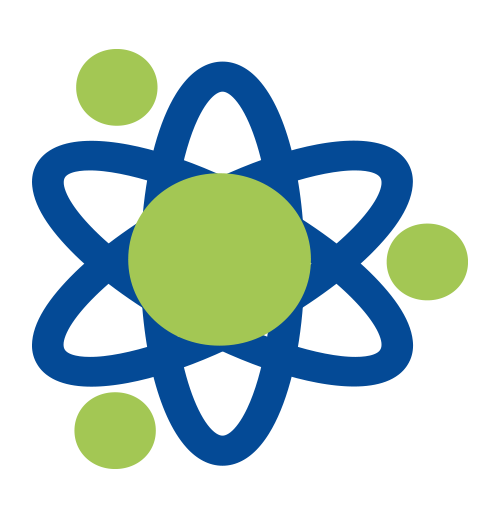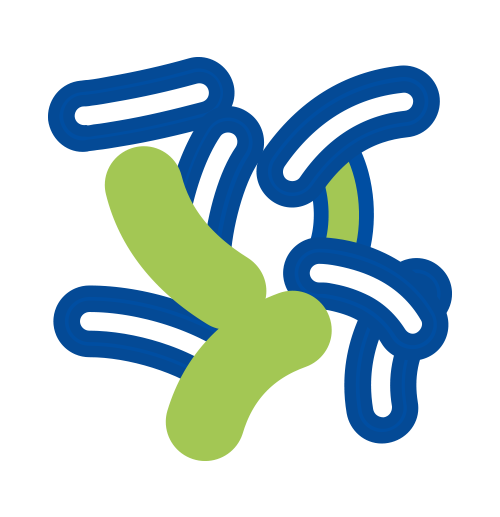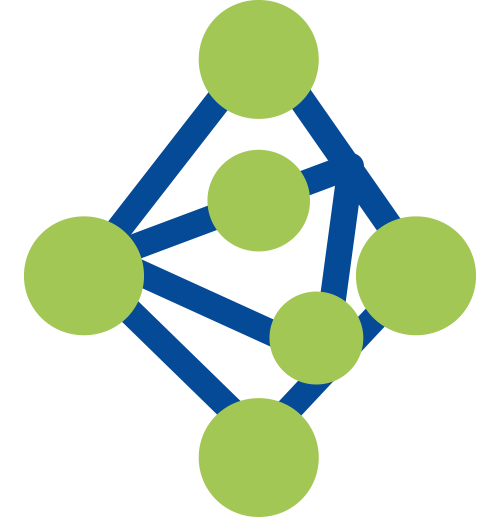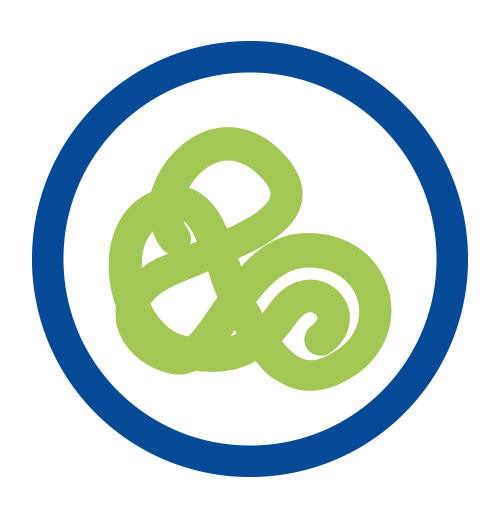Before placing your order, you may want to review our complete guide to custom oligo pools or learn about oligo pool synthesis manufacturing to better understand our capabilities.
Ordering oligonucleotide pools for high-throughput applications requires strategic planning and careful vendor selection to ensure optimal research outcomes. As the molecular biology field advances toward increasingly complex experimental designs, understanding the procurement process for custom oligo pools becomes essential for researchers conducting large-scale genomic studies, CRISPR applications, and synthetic biology projects.
Understanding High-Throughput Oligo Pool Requirements
Modern oligo pool applications demand sophisticated synthesis capabilities that extend far beyond traditional oligonucleotide production. High-throughput projects typically require pools containing thousands to millions of unique sequences, each synthesized with exceptional accuracy and uniformity to support downstream experimental success.
Contemporary array-based synthesis platforms enable simultaneous production of up to 4.35 million unique oligonucleotides on a single chip, with sequence lengths ranging from 20 to 300 nucleotides. This capability represents a fundamental advancement over traditional column-based synthesis methods, offering researchers unprecedented scalability for complex library construction projects.
CRISPR sgRNA library synthesis exemplifies the stringent requirements of high-throughput applications. These libraries demand uniform representation across all sequences to ensure consistent cutting efficiency and minimize experimental bias. Similarly, variant libraries for protein engineering require comprehensive sequence coverage while maintaining synthesis fidelity across thousands of individual oligonucleotides.
Synthetic antibody library construction presents additional challenges, necessitating specialized synthesis approaches that support diverse antibody discovery platforms. These applications require vendors with proven expertise in complex pool design and quality control protocols specifically tailored to antibody library requirements.
Comprehensive Vendor Evaluation Criteria
Synthesis platform technology represents the primary evaluation criterion when selecting vendors for high-throughput oligo pool projects. Array-based synthesis platforms offer distinct advantages over traditional methods, providing superior uniformity, scalability, and cost-effectiveness for large-scale projects.
Leading synthesis platforms achieve coupling efficiencies exceeding 99.4% for standard oligonucleotides, resulting in significantly higher full-length product yields compared to conventional synthesis methods. This enhanced coupling efficiency becomes critically important for longer oligonucleotides, where synthesis errors compound exponentially with sequence length.
Quality control protocols vary substantially among vendors, making thorough evaluation essential for project success. Comprehensive quality assurance programs should include individual oligonucleotide verification, pool composition analysis, and functional testing when applicable. Vendors should provide detailed analytical documentation, including mass spectrometry data, sequence verification reports, and composition uniformity analyses.
Production capacity assessment ensures vendor capability to meet project timelines and scale requirements. High-throughput applications often demand rapid turnaround times while maintaining quality standards. Vendors with dedicated array-based synthesis platforms typically offer more predictable production schedules and enhanced scalability for large projects.
Intellectual property protection measures require careful consideration, particularly for proprietary sequences or novel applications. Reputable vendors maintain strict confidentiality protocols and provide comprehensive non-disclosure agreements when necessary. Clear policies regarding sequence data storage, access controls, and deletion procedures should be established before project initiation.
Strategic Ordering Process Implementation
Project specification development begins with comprehensive requirement definition that addresses all critical aspects of oligo pool synthesis. Researchers must prepare detailed documentation including sequence information, quality requirements, delivery timelines, and specific application details to ensure accurate vendor proposals.
Sequence preparation requires meticulous attention to formatting standards and annotation protocols. Most vendors accept standard file formats including FASTA and Excel spreadsheets, though specialized ordering platforms may offer enhanced functionality for complex projects. Proper sequence annotation should include unique identifiers, quality specifications, and any special synthesis requirements.
Pool design optimization involves balancing complexity, quality, and cost considerations to achieve optimal project outcomes. High-complexity pools may require specialized synthesis approaches or extended production timelines. Researchers should communicate intended applications clearly, enabling vendors to recommend appropriate synthesis strategies and quality control measures.
Quality specification establishment must address sequence fidelity, pool composition uniformity, and purity requirements based on downstream application demands. Different applications tolerate varying error rates, necessitating tailored quality thresholds that balance performance requirements with cost considerations.
Quote request procedures should encompass comprehensive technical specifications including pool complexity, synthesis scale, quality requirements, and delivery timelines. Detailed specifications enable accurate cost estimates and prevent misunderstandings during production phases. Requesting quotes from multiple qualified vendors ensures competitive pricing and optimal technical approaches.
Quality Standards and Technical Specifications
Sequence fidelity represents the fundamental quality metric for most high-throughput applications. Industry-leading vendors consistently achieve error rates below specified thresholds for standard oligonucleotides, though complex sequences or modifications may exhibit higher error rates. Researchers should establish acceptable error thresholds based on experimental design and downstream processing capabilities.
Pool composition accuracy ensures individual oligonucleotides appear in expected ratios within final products. Synthesis biases can significantly impact experimental outcomes, particularly for applications requiring uniform representation across all sequences. Vendors should provide composition analysis data demonstrating acceptable bias levels for specific pool complexity requirements.
Purity specifications address both synthesis-related impurities and contamination concerns throughout the production process. High-performance liquid chromatography analysis provides detailed purity profiles for individual oligonucleotides, while next-generation sequencing enables comprehensive pool characterization. Researchers should specify appropriate analytical methods based on application requirements and available analytical capabilities.
Advanced synthesis platforms implement strict quality control procedures for every oligonucleotide, maintaining exceptional accuracy and uniformity throughout production processes. This systematic approach to quality assurance ensures consistent performance across experimental applications and minimizes the risk of synthesis-related experimental failures.
Cost Optimization and Timeline Management
Strategic cost optimization requires understanding the relationship between pool complexity, quality specifications, and delivery requirements. Pool complexity directly impacts synthesis costs, with high-diversity pools requiring specialized equipment and extended production times. Researchers can optimize costs by carefully evaluating actual complexity requirements and eliminating unnecessary sequences from pool designs.
Quality specification adjustments can substantially impact project costs while maintaining essential performance standards. Research applications may tolerate higher error rates than diagnostic applications, enabling cost savings through appropriately relaxed specifications. However, researchers must ensure that quality adjustments do not compromise experimental objectives or downstream processing requirements.
Production timeline planning requires understanding synthesis phases and quality control procedures involved in oligo pool manufacturing. Standard production timelines range from 10-15 business days for routine pools, extending to 1-2 weeks for complex, high-diversity projects. Complex pools may require specialized synthesis protocols or extended analytical characterization, adding substantial time to standard production schedules.
Delivery coordination requires attention to shipping requirements, storage conditions, and receiving procedures. International shipments may require additional documentation and extended transit times. Researchers should confirm delivery logistics early in the ordering process to prevent delays and ensure proper product handling.
Best Practices and Risk Management
Documentation standards ensure clear communication and prevent costly synthesis errors throughout the ordering and production process. Researchers should maintain master sequence files with comprehensive annotation and implement systematic review procedures before vendor submission. Version control procedures prevent confusion and ensure that final products match intended specifications.
Vendor communication protocols should establish clear expectations for project updates, timeline communications, and issue resolution procedures. Regular project status updates enable proactive management of potential complications and ensure timely project completion. Dedicated project management contacts for complex synthesis projects provide ongoing coordination and technical support.
Quality acceptance criteria should be established before project initiation, providing clear standards for product acceptance or rejection. These criteria should address both technical specifications and delivery requirements. Having predefined acceptance criteria prevents disputes and ensures project completion meets established standards.
Risk mitigation strategies include backup vendor identification, sequence verification protocols, and contingency timeline planning. Establishing clear change control procedures for specification modifications during production phases prevents costly delays and ensures project success.
Emerging Technologies and Future Trends
Artificial intelligence integration in pool design optimization promises enhanced performance and reduced costs for complex applications. Machine learning algorithms can optimize sequence design parameters, predict synthesis success rates, and recommend quality control strategies based on historical data and application requirements.
Automation advances in synthesis and quality control procedures enable higher throughput and improved consistency throughout production processes. These technological improvements benefit researchers through reduced costs, improved quality, and shortened delivery timelines. Understanding vendor technology roadmaps helps inform long-term procurement strategies and partnership decisions.
Sustainability considerations increasingly influence vendor selection decisions as environmental impact assessments become standard procurement criteria. Vendors implementing green chemistry approaches and waste reduction measures provide additional value propositions for environmentally conscious research organizations.
Successfully ordering oligo pools for high-throughput applications requires systematic approaches that address technical, quality, and logistical considerations comprehensively. By implementing thorough vendor evaluation frameworks, establishing clear specifications, and following proven best practices, researchers can ensure optimal project outcomes while maintaining cost effectiveness and meeting critical timelines. The continued evolution of oligonucleotide synthesis technology provides expanding opportunities for enhanced capabilities and improved research outcomes through strategic procurement of advanced biotechnology solutions.
As China's only enterprise capable of commercializing ultra-high-throughput next-generation DNA synthesis, Dynegene Technologies continues pioneering innovative solutions that support the advancing needs of the global research community. Through strategic partnerships and continued technological advancement, researchers can achieve unprecedented experimental capabilities while maintaining the highest standards of quality and reliability in their oligonucleotide procurement strategies.
Dynegene Oligo Pool Ordering Process
Ordering custom oligo pools from Dynegene is simple and straightforward. Our streamlined process ensures fast delivery and exceptional quality:
Step-by-Step Ordering Guide
- Submit Design Specifications - Provide your oligo pool sequences, target applications, and quality requirements
- Technical Consultation - Our experts review your requirements and provide optimization recommendations
- Quote and Timeline - Receive detailed pricing and delivery schedule within 24 hours
- Order Confirmation - Approve design specifications and place your order
- Quality Synthesis - Advanced synthesis using our proprietary technology
- Quality Control Testing - Comprehensive QC analysis and documentation
- Fast Delivery - Secure packaging and worldwide shipping with tracking
Required Information for Oligo Pool Orders
To ensure accurate processing of your custom oligo pool order, please provide:
- Complete sequence list in FASTA or Excel format
- Target application (CRISPR, NGS, synthetic biology, etc.)
- Desired quantity and concentration
- Quality specifications and documentation requirements
- Delivery timeline and shipping preferences
 NGSHybridization Capture DNA Probe QuarStar Human All Exon Probes 4.0 (Tumor) QuarStar Human All Exon Probes 4.0 (Standard) QuarStar Liquid Pan-Cancer Panel 3.0 QuarStar Pan-Cancer Lite Panel 3.0 QuarStar Pan-Cancer Fusion Panel 1.0 QuarStar Pan Cancer Panel 1.0 Hybridization Capture RNA Probe QuarXeq Human All Exon Probes 3.0 HRD panel Library Preparation DNA Library Preparation Kit Fragmentation Reagent mRNA Capture Kit rRNA Depletion Kit QuarPro Superfast T4 DNA Ligase Hybridization Capture QuarHyb Super DNA Reagent Kit QuarHyb DNA Plus 2 Reagent Kit QuarHyb DNA Reagent Kit Plus QuarHyb One Reagent Kit QuarHyb Super Reagent Kit Pro Dynegene Adapter Family Dynegene Blocker Family Multiplex PCR QuarMultiple BRCA Amplicon QuarMultiple PCR Capture Kit 2.0 PathoSeq 450 Pathogen Library Corollary Reagent Streptavidin magnetic beads Equipment and Software The iQuars50 NGS Prep System
NGSHybridization Capture DNA Probe QuarStar Human All Exon Probes 4.0 (Tumor) QuarStar Human All Exon Probes 4.0 (Standard) QuarStar Liquid Pan-Cancer Panel 3.0 QuarStar Pan-Cancer Lite Panel 3.0 QuarStar Pan-Cancer Fusion Panel 1.0 QuarStar Pan Cancer Panel 1.0 Hybridization Capture RNA Probe QuarXeq Human All Exon Probes 3.0 HRD panel Library Preparation DNA Library Preparation Kit Fragmentation Reagent mRNA Capture Kit rRNA Depletion Kit QuarPro Superfast T4 DNA Ligase Hybridization Capture QuarHyb Super DNA Reagent Kit QuarHyb DNA Plus 2 Reagent Kit QuarHyb DNA Reagent Kit Plus QuarHyb One Reagent Kit QuarHyb Super Reagent Kit Pro Dynegene Adapter Family Dynegene Blocker Family Multiplex PCR QuarMultiple BRCA Amplicon QuarMultiple PCR Capture Kit 2.0 PathoSeq 450 Pathogen Library Corollary Reagent Streptavidin magnetic beads Equipment and Software The iQuars50 NGS Prep System Primers and Probes
Primers and Probes RNA SynthesissgRNA miRNA siRNA
RNA SynthesissgRNA miRNA siRNA



 Gene Synthesis
Gene Synthesis Oligo Pools
Oligo Pools CRISPR sgRNA Library
CRISPR sgRNA Library Antibody Library
Antibody Library Variant Library
Variant Library


 Tel: 400-017-9077
Tel: 400-017-9077 Address: Floor 2, Building 5, No. 248 Guanghua Road, Minhang District, Shanghai
Address: Floor 2, Building 5, No. 248 Guanghua Road, Minhang District, Shanghai Email:
Email: Tel: 400-017-9077
Tel: 400-017-9077 Address: Floor 2, Building 5, No. 248 Guanghua Road, Minhang District, Shanghai
Address: Floor 2, Building 5, No. 248 Guanghua Road, Minhang District, Shanghai Email:
Email: 







